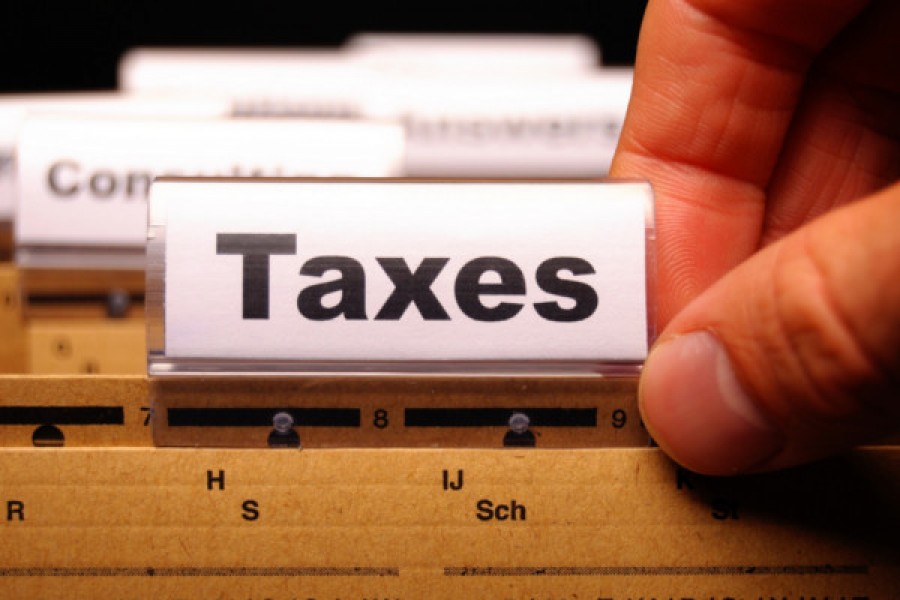
Published :
Updated :

In the context of economic development, the ability of a country to raise tax revenue is mainly determined by its tax system design and the efficiency of tax collection and management. From the perspective of taxation practices in various countries, designing the taxation system is reflected by the efficiency of tax collection and management. The relative size of a country's tax revenue collection and tax gap is closely related to the tax collection and management efficiency of the tax administration agencies.
A reasonable explanation for the introduction of value-added tax (VAT) by most developing countries in the world is to increase the taxpayer's compliance with tax payment through mutual supervision mechanism between taxpayers without increasing the cost imposed by the tax administration authorities. This consideration for the factors of taxation determines that developing countries can only adopt such tax system that is mainly based on turnover tax. From the perspective of taxation, due to restrictions on the level of taxation in developing countries, tax revenues are relatively raised higher through indirect taxes that focus on taxes such as value-added tax and consumption tax, while direct taxes represented by income tax and property tax are included in the total tax revenue.
An important way to look at tax gap is to examine the size of tax gap in a country by analysing the size of the underground economy and its influencing factors. The size of the underground economy is directly related to the institutional infrastructure. The institutional infrastructure of a country mainly includes government regulations, establishment and implementation of laws, the degree of judicial independence, the size of effective tax rates, the effective provision of public goods or services, and the effective protection of property rights. It is generally believed that the higher the level of government regulation, the greater the size of its underground economy and the greater the tax gap. When government over-regulation occurs, an alternative relationship exists between the size of the underground economy and the size of the official economy.
It is believed that higher tax rates can raise higher tax revenues, and the government can provide higher levels of public services accordingly, thereby attracting more companies and individuals out of the underground economy, resulting in a healthy balance of "high tax rates, high taxes, high public services, and small-scale underground economy". On the other hand, low-tax countries, because they do not have enough income to provide high levels of public services, form a vicious balance of "low tax rates, low taxes, low public services, and high-scale underground economy." In the first scenario of healthy balance, the tax gap is relatively small; in the second vicious equilibrium, tax gap is relatively large.
Attempting to draw administrable rules defining economically meaningful lines on interest credited to accounts but not drawn on, zero coupon bonds, stock appreciation from undistributed profits, inflationary tendencies, profits from insider trading, gains from speculation in land, profits or losses on speculative ventures and so on is a Herculean task. Taxpayers' techies can then get busy ferreting out shortcuts through the resulting labyrinth to the detriment of national revenue and also economic efficiency.
It has been a regular phenomenon that any increase in disposable income resulting from lower capital gains taxation is likely to accrue to individuals with a high propensity to save. If the proposal is advanced on a revenue-neutral basis, the replacement revenues are likely to have a greater impact on consumption demand, so that the net overall effect of making concessions to capital gains may be to reduce demand, sales, and investment in productive facilities. The main driving force behind the proposals may well be a pretext for providing windfalls to persons who can contribute to campaign funds as well as added commissions for brokers or revenue managers.
Some have argued for reduction in capital gains rates rather than full exemption, pointing to surges in revenue from the "fire sale" spate of realisations to take advantage of the new and possibly short-lived tax bargains. If this is done on a current-revenue-neutral basis, there may be some one-time stimulus to the economy and to investment, resulting from what would be an increase in the effective deficit as viewed from a longer term perspective, but this will be small, temporary, and counterproductive in the long run.
A far more effective measure would be to reduce or eliminate the corporate income tax, which is, in effect, a tax above the market, constituting an additional hurdle that prospective equity-financed investments must face, in contrast to the below-or-after-market impact of capital gain concessions. In addition to this double-whammy impact on the economy (whereby the tax both abstracts from disposable income and also discourages investment), the tax has numerous defects in distorting investment allocation, encouraging thin equity financing with consequent increased incidence of bankruptcies, and complicating tax laws. Unfortunately, any such elimination is likely to be opposed not only by those making a living from the complexities but by many who variously believe firmly that its burden falls on someone other than themselves. Actually in most plausible scenarios, the chief burden will be on wage-earners. If considered as a substitute for other taxes on a revenue-neutral basis, it would increase current unemployment. If current employment is assumed to be maintained by an appropriate fiscal policy, future labour productivity and wages will be depressed by labour having less capital to work with.
Dr Muhammad Abdul Mazid is a retired Secretary to the Government and former Chairman of National Board of Revenue (NBR). mazid.muhammad@gmail.com


 For all latest news, follow The Financial Express Google News channel.
For all latest news, follow The Financial Express Google News channel.